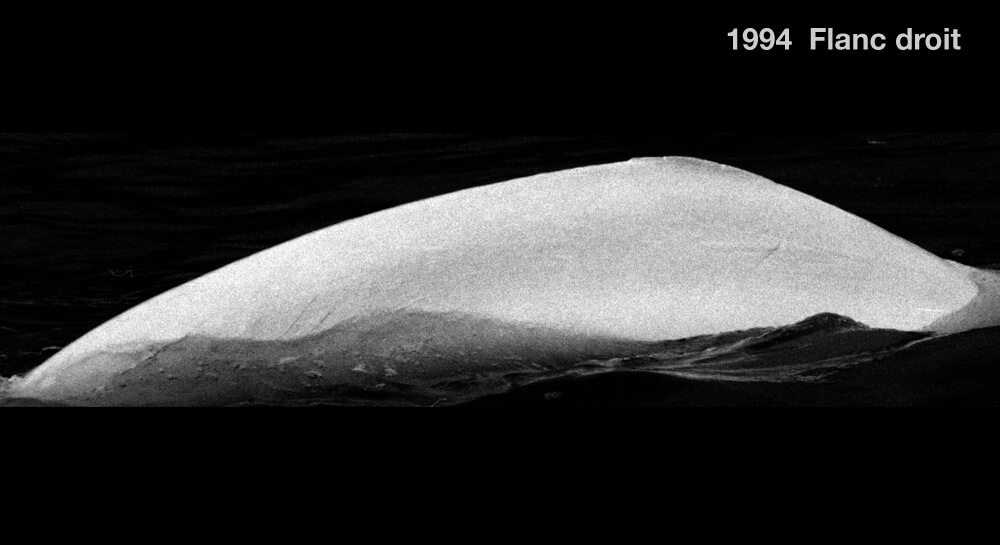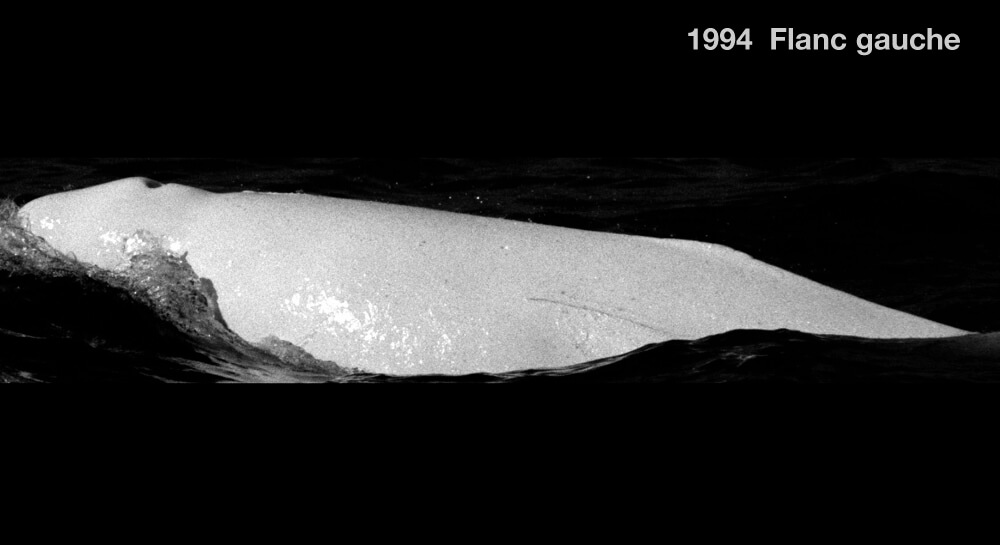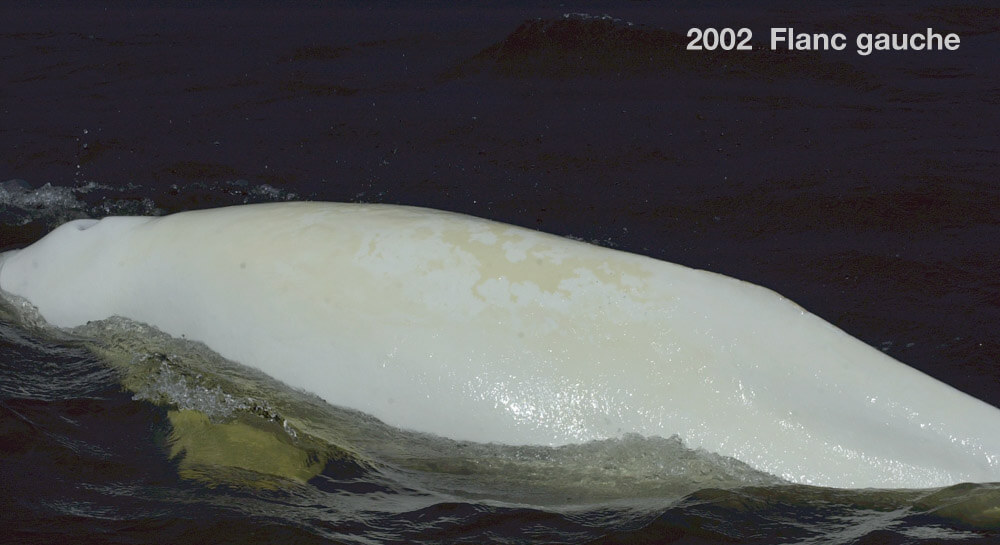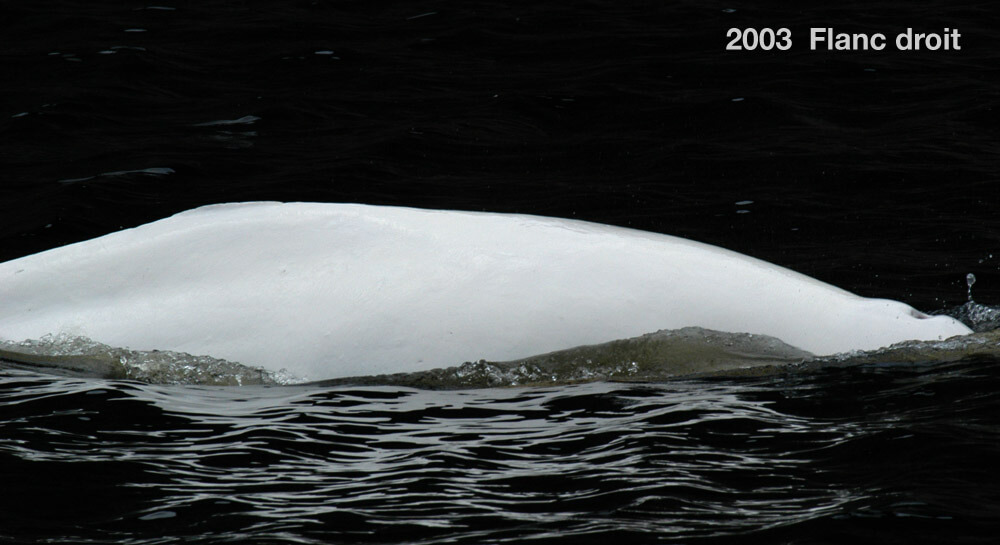Tepui
Beluga

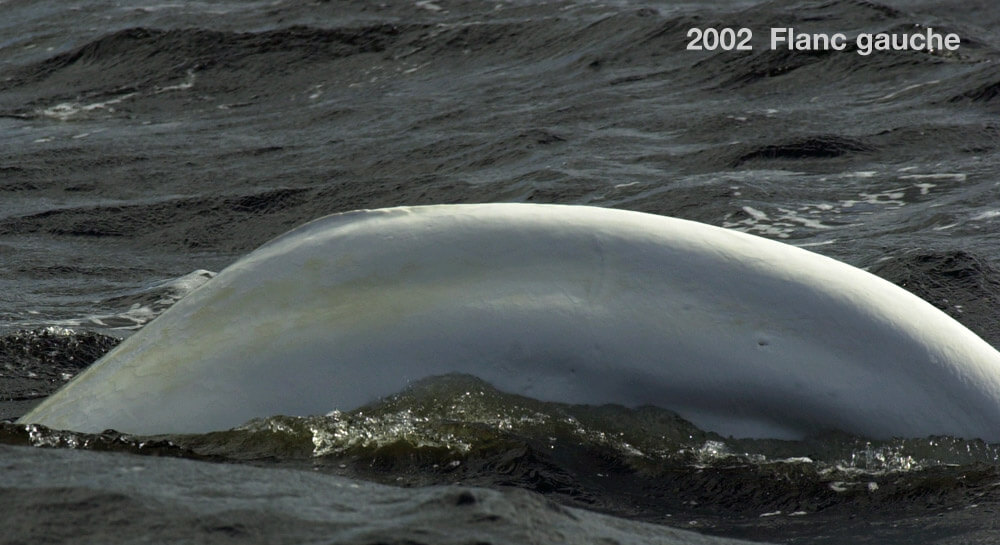
Adopted by Adelaide Gomer
-
ID number
DL0228
-
Sex
Male
-
Year of birth
Before 1974
-
Known Since
1986
Distinctive traits
Tepui can be recognized by the small indentations on his dorsal crest, but it’s easier to confirm his identity by the small dot on his left peduncle.
Life history
Tepui was first photographed in 1986. He was already white, so would have been born before 1974.
Tepui’s sex was confirmed by a genetic analysis carried out on a biopsy taken from his back: he is a male. He is part of one of two male networks in the Saguenay.
The beluga is a gregarious animal, living in groups, called clans, of 2 to several dozen individuals. In summer, the males live separately from the females. Over the years, males tend to form stable bands of mates. These associations gradually become established and may play a role in the belugas’ reproductive life. Tepui has often been observed in the company of Frimas, Dance-sea and Le Survivant, males well known to the GREMM team.
Observations history in the Estuary
Years in which the animal was not observed Years in which the animal was observed
Latest news
Unfortunately, Tepui has not been seen since October 1, 2003. At the time of this last sighting, he was at the mouth of the Saguenay fjord in the company of Slash, Pascolio and Le Survivant, in a herd of around fifty animals. We also spotted several gray youngsters. The dynamism of the herd was high : they spent a lot of time on the surface “porpoising”. What’s more, we could see heads, tails and pectoral fins sticking out of the water.
What’s happened to him since this encounter? Has it died? Has it remained invisible to the eye of the researcher? It’s impossible to answer these questions at the moment. One thing is certain : the data collected over the past 17 years on Tepui has enabled us to learn a great deal more.
Sponsor
Adelaide Gomer adopted Tepui (2000) and Dorothy (2016).

